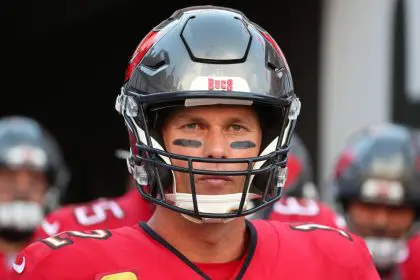The NFL continues to demonstrate its remarkable talent for transforming routine announcements into major cultural events as fans eagerly await this week’s official 2025 schedule release. While teams already know who they’ll face in the upcoming season, the precise order of matchups remains the tantalizing detail that keeps supporters engaged and speculating across social media and sports talk platforms nationwide.
In response to inevitable leaks that historically emerge as the announcement date nears, the NFL has evolved its strategy to control the narrative by releasing select information through official channels and broadcast partners. This calculated approach has successfully elevated what could be a simple administrative update into a significant sports media event, underscoring the league’s unparalleled ability to generate content and engagement from virtually every aspect of its operations.
Beyond dates: How schedules shape fan experiences
For dedicated NFL supporters, the schedule release transcends mere game planning—it becomes a critical framework around which many organize significant portions of their lives for the following six months. Football’s deep integration into American cultural identity means these announcements directly impact family gatherings, social events, travel arrangements, and even workplace conversations across the country.
The schedule helps fans visualize their team’s journey through the season, with considerations extending far beyond simple win-loss predictions. Weather patterns at outdoor stadiums, rest advantages between games, travel distances, and the strategic placement of divisional matchups all become subjects of intense analysis and discussion. For many supporters, these details fundamentally shape how they’ll experience and participate in the upcoming season, whether through stadium attendance, watch parties, or fantasy football preparations.

Strategic preferences: Early challenges versus late-season tests
Among the most frequent debates following schedule announcements is whether teams benefit more from facing their toughest opponents early or saving these challenging matchups for later in the season. This discussion reveals the sophisticated understanding many fans bring to their analysis of competitive dynamics throughout an NFL campaign.
Among football analysts and dedicated supporters, some supporters advocate for tackling difficult games early, suggesting that early-season victories against formidable opponents can establish momentum and confidence that carries teams through subsequent matchups. This perspective values the psychological advantages of overcoming significant challenges before midseason adjustments become necessary.
Conversely, other fans prefer seeing their teams build rhythm and cohesion through more manageable early contests before facing elite competition. This viewpoint emphasizes the importance of teams fully developing their identity and ironing out execution issues before high-stakes divisional games that often determine playoff positioning. The strategic placement of these crucial division matchups—particularly in the season’s final months—remains a focal point of fan interest in the schedule release.
Optimal viewing: The advantage of non-Sunday games
Schedule releases also prompt discussions about ideal game days, with many fans expressing preference for their teams to occasionally play outside the traditional Sunday afternoon window. Thursday and Monday night contests, while potentially challenging for player recovery, offer supporters a distinct viewing experience that complements their weekly football consumption.
When teams play in these prime-time slots, their fans gain the rare opportunity to enjoy Sunday’s full slate of games without the emotional investment and focused attention their own team’s performance normally demands. This sentiment resonates particularly strongly with dedicated followers who typically spend standard game days analyzing their team’s performance rather than casually enjoying the broader entertainment product.
These alternative game slots create a different relationship between fans and the sport itself—one where they can temporarily set aside their partisan concerns and appreciate the league’s overall competitive landscape from a more neutral perspective. This diversification of viewing experiences contributes significantly to the NFL’s sustained cultural relevance throughout the season.
Rookie showcases: Managing expectations from early glimpses
As schedule anticipation builds, concurrent rookie minicamps provide fans their initial glimpses of newly drafted players in team colors. These practices generate considerable social media content, yet experienced supporters approach these early highlights with measured enthusiasm, recognizing the substantial difference between non-contact drills and regular-season competition.
These early sessions primarily serve to familiarize rookies with professional expectations and fundamental systems rather than providing meaningful predictive value about future performance. While highlight compilations from these practices generate millions of views across platforms, knowledgeable fans understand these activities represent merely the first step in a lengthy development process that will continue through training camp and preseason games.
The modest skepticism many supporters maintain toward minicamp performances reflects their sophisticated understanding of player development timelines—an awareness that has grown alongside expanded coverage of the NFL’s offseason programs over recent decades.
Cultural significance beyond the field
The NFL schedule release has evolved from a simple administrative announcement into a genuine cultural touchstone that reinforces football’s central position in American entertainment. The event demonstrates how deeply the sport has woven itself into social calendars, travel planning, and interpersonal connections across diverse communities nationwide.
As the league continues refining this announcement into an increasingly sophisticated content strategy, fan engagement remains remarkably strong—a testament to football’s unique ability to transform seemingly routine logistics into compelling narratives that sustain conversations for weeks afterward.











